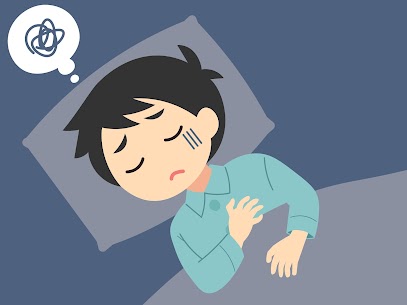
Sleep is an essential part of human life and one of our physiological needs. It has been reported that one in four Japanese people have some kind of problem such as “not getting enough rest from sleep.” Lack of sleep has various effects on the body, such as depression, back pain, and fatigue.
In the 2021 Global Sleep Time Survey, Japan’s average sleep time was “6 hours 44 minutes,” ranking first among countries that do not get enough sleep.
This is partly due to the spread of 24-hour convenience stores and smartphones, but it is also mostly due to the low awareness of the importance of sleep among the Japanese people. In Japan, we often see cases in which short sleep is regarded as a virtue. As a result, it is the cause for various symptoms in addition to insomnia.
Effects of lack of sleep on the body
・Hormonal imbalance and weight gain
・Fatigue accumulates due to lack of time to rest the body.
・The brain does not have enough time to rest, and therefore, the ability to process memory and emotions deteriorates.
・Risk factor for the onset/exacerbation of back pain
・Increased mortality rate (with less than 6.5 to 7.5 hours of sleep)
Relationship between sleep and back pain
Low back pain is one of the most frequent painful disorders in adults and is often associated with insomnia. However, it was not clear whether back pain causes insomnia or insomnia causes back pain.
Recent studies have shown that persistent sleep deprivation increases the risk of developing back pain.
Other factors
・ People with insomnia have a 1.4 times higher risk of having back pain 3 years later.
In a study of Japanese subjects following the Great East Japan Earthquake, the risk of developing low back pain increased with the frequency and duration of sleep disturbance.
Sleep deprivation makes the body more sensitive to pain and more prone to feeling pain.
Thus, while it has not been proven that back pain causes insomnia, it has been proven that insomnia is a risk factor for developing/worsening back pain.
If you feel pain more easily, you will not be able to sleep even if you want to. This is why a good quality of sleep is important.
First, learn about your sleep
・At what time do you go to bed and at what time do you feel the most energized when you wake up?
・How many hours of sleep do you need to avoid affecting your daytime activities?
・Do you know the cause of your inability to sleep?
It is important to think about all this occasionally and reassert one’s sleeping habits.
It is not only exercise that prevents or alleviates back pain, but daily lifestyle habits also have a large impact on it.
ILC International Lumbago Clinic Tokyo
References:
https://www.ingentaconnect.com/content/wk/brs/2022/00000047/00000004/art00014
https://core.ac.uk/download/pdf/236076539.pdf
https://bibgraph.hpcr.jp/abst/pubmed/17309767?click_by=rel_abst



